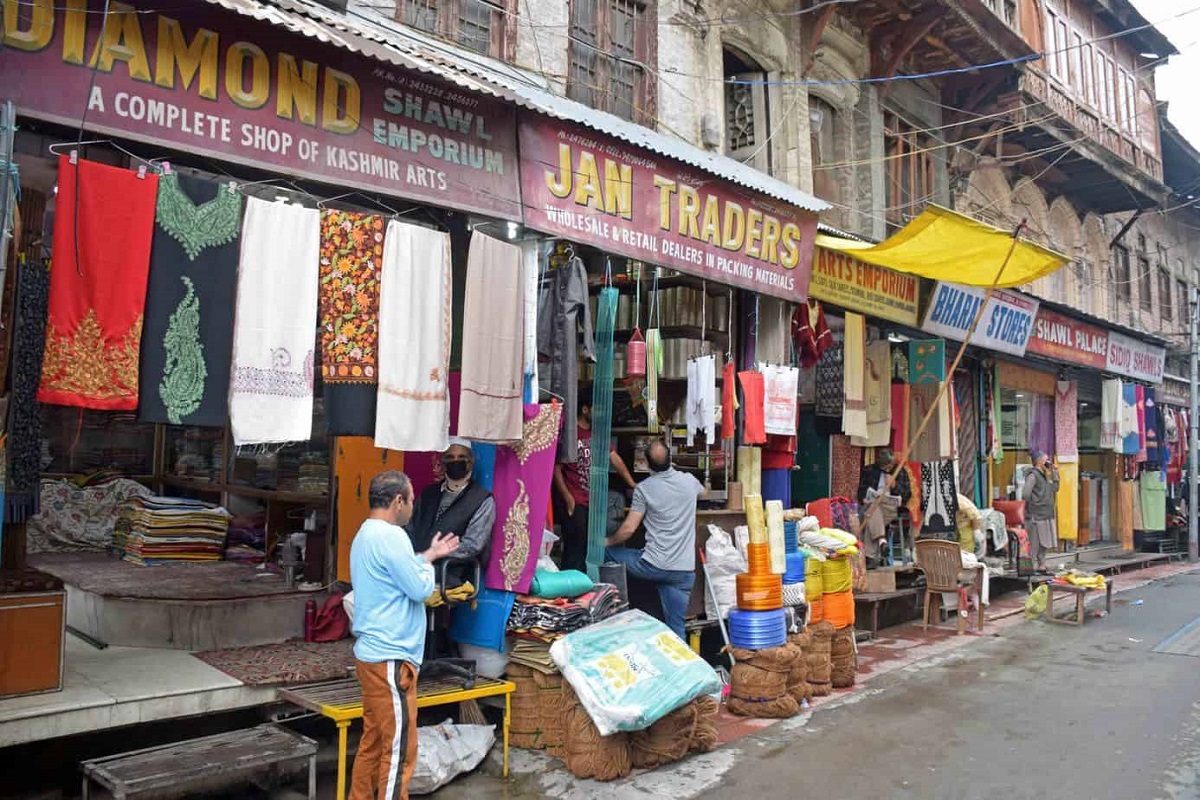
By Mohammad Hanief
Work in Jammu and Kashmir is going through a real shift.
For years, most young people prepared only for government jobs. Now many of them are choosing a different road.
They are starting small ventures from their homes, rented rooms, shared offices, and even from the back corners of family shops.
These ideas are changing daily life and showing how wide opportunity can stretch in the valley and in the hills of Jammu.
This new wave did not grow in easy conditions. It took shape in the middle of tough realities.
The region’s young founders often begin with modest resources and limited networks. They start with hope more than certainty. Even then, they persist.
Their journey has turned into one of the most interesting economic shifts in recent years.
Connectivity improved and government programs widened the pool of options available to young people. Online platforms allowed products from Kashmir to travel across borders. Digital literacy grew across schools and towns. The sense of possibility expanded.
Progress, however, moves alongside daily hurdles that make entrepreneurship in J&K a tougher climb than in many other parts of the country.
The business environment carries a level of unpredictability that can unsettle anyone trying to build something from the ground up.
Heavy snowfall, blocked roads, sudden communication breaks, and sensitive political conditions can slow work without warning.
A café owner in Srinagar, for instance, may spend days waiting for supplies stuck on the Jammu-Srinagar highway. A small logistics firm may struggle to keep delivery schedules steady.
These disruptions affect customer trust, long-term planning, and investor confidence.
Entrepreneurs often source raw materials from outside the region, raising input prices. Sending finished goods back to large markets adds another layer of expense.
A young craft seller from Budgam shared that shipping a single parcel to Bengaluru sometimes costs almost as much as the product itself.
This imbalance cuts into earnings and slows expansion.
Infrastructure gaps also hold back many promising ventures. Internet coverage has certainly grown, but several rural belts still face sudden drops in speed or breakdowns. This affects digital payments, online sales, and social media marketing. Warehousing facilities, cold storage units, and modern packaging services remain limited.
These gaps create real barriers for agribusinesses and handicraft exporters trying to reach competitive markets.
The administrative maze adds further strain. A first-time founder can spend weeks trying to understand licensing rules, tax requirements, and compliance procedures.
Entrepreneurs from small towns say the process feels too layered and confusing. Even with improvements in government support, many schemes remain underused because people struggle to handle the paperwork or even learn about them in time.
Finance is another puzzle.
Loan programs exist on paper, though access can be slow. Many young people start with their own savings or borrow from family. A venture without collateral or a credit history faces long waiting periods for approval. Documentation demands and high interest rates on certain types of credit increase this pressure.
The shortage of skilled labour is another concern.
Startups in digital marketing, design, hospitality, and tech often find it hard to hire trained staff. Many founders end up training their teams from scratch, which adds time and cost.
Market linkages remain thin for sectors that carry deep cultural value.
Kashmir’s craft economy produces some of the finest work in the world, but artisans struggle to secure long-term contracts. Agripreneurs face uncertainty in large markets due to irregular supplies and limited brand visibility.
Tourism entrepreneurs search for stable partnerships in a sector that fluctuates with every major event.
Women are also shaping the startup landscape with remarkable will. Many run ventures from their kitchens or living rooms due to mobility limits or family expectations. Their access to funds, digital tools, and networks remains unequal.
Even so, women-led businesses across Kashmir are expanding with community support, online marketplaces, and word-of-mouth trust.
For all these challenges, young entrepreneurs continue to reshape the region’s economic identity. Their work reflects ambition and also a strong sense of responsibility.
Many new ventures support rural workers, revive cultural crafts, create jobs, or improve local services.
These efforts turn entrepreneurship into a community project instead of a purely individual journey.
A stronger ecosystem can push this movement further.
Better digital infrastructure, smoother market access, simpler processes, and wider training programs can allow more young people to take the leap.
J&K holds immense entrepreneurial energy. The region’s youth have already shown how far they can go with limited support.
Their journey signals a shift in how Kashmir imagines work, aspiration, and identity.
Growth is no longer tied to one path. A new landscape is taking shape, led by people who believe they can build something meaningful on their own terms.
- The author is a senior analyst and can be reached at m.hanief@gmail.com.
Source link



